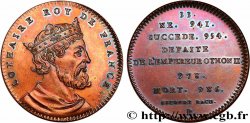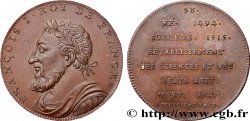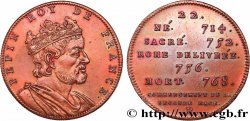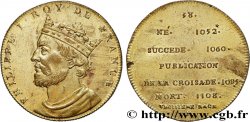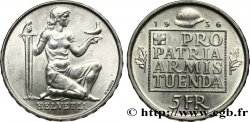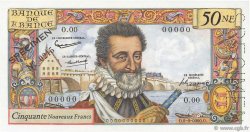E-auction 157-95701 - fjt_260837 - SÉRIE MÉTALLIQUE DES ROIS DE FRANCE Règne de LOUIS Ier dit le Pieux - 24 - Émission de Louis XVIII n.d.
Devi Sign-in ed essere un offerente approvato fare un'offerta, Login per fare offerte. Conti sono soggetti ad approvazione e di approvazione sono raggiunti entro 48 ore. Non aspettare fino al giorno di una vendita si chiude per registrarti.Confermando la tua offerta su questo oggetto ti impegni ad un contratto legalmente vincolante per l'acquisto di questo prodotto e fare clic su «offerta» costituisce accettazione dei termini di utilizzo de e-auctions cgb.fr.
Offerta deve essere collocato in euro gli importi interi vendita only.The si chiuderà al momento sulla descrizione dell'oggetto, eventuali offerte pervenute al sito dopo l'orario di chiusura non verranno eseguite. Volte transmition possono variare e le offerte potrebbero essere respinto se si attende per gli ultimi secondi. Per ulteriori informazioni ckeck le FAQ.
SENZA COSTI PER GLI ACQUIRENTI.
SENZA COSTI PER GLI ACQUIRENTI.
| Valutazione : | 58 € |
| Prezzo : | 21 € |
| Offerta maxima : | 58 € |
| Data di fine vendita : | 18 aprile 2016 19:08:30 |
| partecipanti : | 4 partecipanti |
Tipo : Règne de LOUIS Ier dit le Pieux - 24 - Émission de Louis XVIII
Data: n.d.
Metallo : ottone
Diametro : 32 mm
Asse di coniazione : 12 h.
Peso : 13,76 g.
Orlo : cannelée
Grado di rarità : R2
Diritto
Titolatura diritto : LOUIS I . ROY DE FRANCE.
Descrittivo diritto : Buste imaginaire lauré et drapé à gauche.
Rovescio
Titolatura rovescio : 24 - NÉ 778 - SUCCEDE AUX DEUX COURONNES 814 - SECONDE RACE . P.
Descrittivo rovescio : en sept lignes. Coin du deuxième type.
Commento
Louis Ier dit le Pieux ou « le Débonnaire » est né en 778 et mort le 20 juin 840 sur une île du Rhin à Ingelheim-Am-Rhein près de Mayence en Allemagne. Il a été inhumé auprès de sa mère en l'abbaye Saint-Arnould de Metz.
Il est né en été 778, en l'absence de son père Charlemagne, qui entreprend alors une expédition militaire vers l'Espagne. Sa mère, Hildegarde de Vintzgau, le met au monde à la villa Cassino Gilum, Chasseneuil - du - Poitou, dans l'actuel département de la Vienne. Son frère jumeau, Lothaire, meurt peu après.
Louis le Pieux est roi d'Aquitaine (781-814) et empereur d'Occident (814-840). Son règne est marqué par de nombreuses menaces sur l'unité de l'Empire carolingien légué par son père Charlemagne : ses fils se révoltent contre lui, et il doit faire face aux raids des Vikings. Durant cette période, les ambitions des aristocrates s'affirment de plus en plus, menaçant le pouvoir impérial.
Pour la suite de sa biographie, voir http://fr.wikipedia.org/wiki/Louis_le_Pieux.
Louis I, known as the Pious or \\\"the Pious,\\\" was born in 778 and died on June 20, 840, on an island in the Rhine at Ingelheim-Am-Rhein near Mainz, Germany. He was buried next to his mother at the Abbey of Saint-Arnould in Metz. He was born in the summer of 778, in the absence of his father Charlemagne, who was then undertaking a military expedition to Spain. His mother, Hildegard of Vintzgau, gave birth to him at the villa Cassino Gilum, Chasseneuil-du-Poitou, in the present-day department of Vienne. His twin brother, Lothair, died shortly after. Louis the Pious was King of Aquitaine (781-814) and Emperor of the West (814-840). His reign was marked by numerous threats to the unity of the Carolingian Empire bequeathed by his father Charlemagne: his sons revolted against him, and he had to face Viking raids. During this period, the ambitions of the aristocrats became increasingly assertive, threatening imperial power. For the rest of his biography, see http://fr.wikipedia.org/wiki/Louis_le_Pieux
Il est né en été 778, en l'absence de son père Charlemagne, qui entreprend alors une expédition militaire vers l'Espagne. Sa mère, Hildegarde de Vintzgau, le met au monde à la villa Cassino Gilum, Chasseneuil - du - Poitou, dans l'actuel département de la Vienne. Son frère jumeau, Lothaire, meurt peu après.
Louis le Pieux est roi d'Aquitaine (781-814) et empereur d'Occident (814-840). Son règne est marqué par de nombreuses menaces sur l'unité de l'Empire carolingien légué par son père Charlemagne : ses fils se révoltent contre lui, et il doit faire face aux raids des Vikings. Durant cette période, les ambitions des aristocrates s'affirment de plus en plus, menaçant le pouvoir impérial.
Pour la suite de sa biographie, voir http://fr.wikipedia.org/wiki/Louis_le_Pieux.
Louis I, known as the Pious or \\\"the Pious,\\\" was born in 778 and died on June 20, 840, on an island in the Rhine at Ingelheim-Am-Rhein near Mainz, Germany. He was buried next to his mother at the Abbey of Saint-Arnould in Metz. He was born in the summer of 778, in the absence of his father Charlemagne, who was then undertaking a military expedition to Spain. His mother, Hildegard of Vintzgau, gave birth to him at the villa Cassino Gilum, Chasseneuil-du-Poitou, in the present-day department of Vienne. His twin brother, Lothair, died shortly after. Louis the Pious was King of Aquitaine (781-814) and Emperor of the West (814-840). His reign was marked by numerous threats to the unity of the Carolingian Empire bequeathed by his father Charlemagne: his sons revolted against him, and he had to face Viking raids. During this period, the ambitions of the aristocrats became increasingly assertive, threatening imperial power. For the rest of his biography, see http://fr.wikipedia.org/wiki/Louis_le_Pieux








 Segnalare un errore
Segnalare un errore Stampate la pagina
Stampate la pagina Condividi mia selezione
Condividi mia selezione Fai una domanda
Fai una domanda Consegnare / vendere
Consegnare / vendere
 Descrittivo
Descrittivo